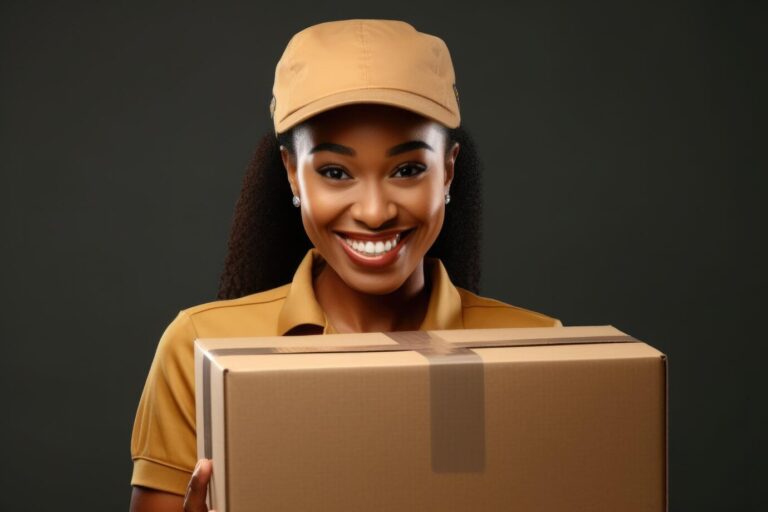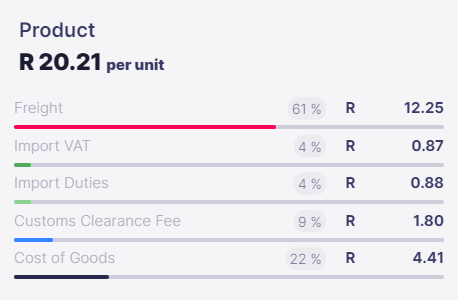
Well… February’s here already. How are those New Year’s resolutions holding up for you? If it’s not going as planned, don’t worry. January is just the trial month, right?
Last year has been a very, very long year. That’s putting it lightly. While we tend to say this about almost every year, it feels like 2023 really took the cake. And if you’re a small business owner, all we can say is…shame.
But looking ahead, even as customer demands are set to rise and supply chain pressures increase, 2024 holds a wealth of opportunities for SMEs. And if it doesn’t quite unfold that way, well, what’s another empty promise in South Africa, anyway? (Hey, dark humour here is like running water and electricity – not everybody gets it.)
In all seriousness, success isn’t going to magically happen. If you want this year to be different, you’re actually going to have to put in the work and stay on top of the key logistics and ecommerce trends.
Here’s the lowdown on what to focus on if you’re aiming for better results in your business this 2024.
If you thought AI technology was a big deal in 2023, wait until you see its impact in 2024. Right now, it’s already able to do things like predict demand, sort parcels, and ensure secure transactions through distributed ledger technologies. For small business owners like yourself, even small efficiencies in order packing or warehouse space usage can make a huge difference in cost savings.
What’s more, AI assistant applications in logistics and shipping, such as Airpool’s chatbot, use natural language processing (NLP) and machine learning to provide instant answers when you visit our website.
According to Accenture’s research, 36% of businesses (of all sizes) have already incorporated AI into their supply chain and logistics operations. And it is projected that by this year, 50% of supply chain organisations will embrace evolving trends in supply chain technology by investing in applications that bolster AI and advanced analytics capabilities.
Most of today’s shoppers, especially Gen Zers, favour the convenience of online shopping over going to the store. If you want them to buy from you, you’re going to have to cater to their preferences and provide various payment options at checkout. This means you can’t only rely on cash, credit, or debit cards for payments, anymore.
You’ll have to explore popular additional avenues, such as digital wallets which include iApple Pay, Google Pay, PayPal, and Venmo. Recent surveys from Forbes show that almost two-thirds of respondents use these payment methods as frequently as traditional ones, with 53% favouring them even more.
Takealot is obviously the leading ecommerce retailer here in SA, but this might change with Amazon’s imminent launch. For smaller online stores like yours, this brings both exciting possibilities and a few challenges. These big marketplaces open doors to tons of customers, which is great, but it also means dealing with additional expenses and following someone else’s playbook.
As this trend gains momentum in 2024, you will need to decide if selling on these big platforms is worth it and strategise on how to stand your ground against these giants.
With inflation soaring, consumers are becoming more and more cautious about their purchases. They expect real value from whatever you’re trying to sell them. You need to give them a reason why they should invest their hard-earned money in your offerings.
This means you will have to come up with more creative ways to sell. You will also need to focus not only on acquiring customers but retaining them. Offering a 10% discount or free shipping every now and then is not going to cut it anymore. Think outside the box.
Take a cue from Versus Socks – besides their massive Black Friday deals and their Instagram competitions, they’ve launched their annual Versus Run Party. Participants stand a chance to win a free pair of their socks just by entering. So, think beyond just selling a product – make it an experience that people want to be a part of.
Fast delivery is about to get even faster. People don’t want to wait around for their packages anymore and, with tech advancing so rapidly, there’s no reason why they have to. There will be more local warehouses, convenient drop-off spots, and a strategy that lets customers return items almost anywhere.
Speed of delivery is the second most crucial factor for shoppers right after free shipping, with 55% of shoppers willing to switch retailers just to get their orders faster. The numbers speak for themselves: 2024 is the year of ultrafast shipping. If you don’t get your customers’ packages to their doorsteps pronto, you’ll risk losing sales to those who do.
These are just a few of the logistics and ecommerce trends we suggest you prioritise if you want to improve your small business’s financial health by this time next year. Of course, you don’t have to tackle all of them at once. Begin with one – faster deliveries, for example.
Here at Airpool, we happen to specialise in just that. Partner with us and we’ll make sure your customers receive their packages within just 7 to 10 working days.
Landed cost is the sum of all expenses associated with importing your goods from China to South Africa. This includes the cost of the goods paid to your supplier, the shipping costs, clearance costs and the import taxes & duties.
It is represented on a per unit cost and helps you with:
Note: This is not what you are paying to Airpool but rather what you are paying to all the suppliers and relevant parties: Airpool, the Manufacturer of the goods and the Import Taxes (VAT & Duties)
